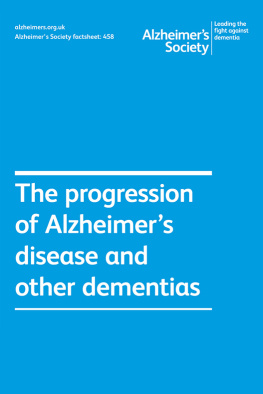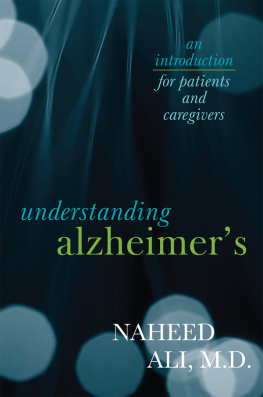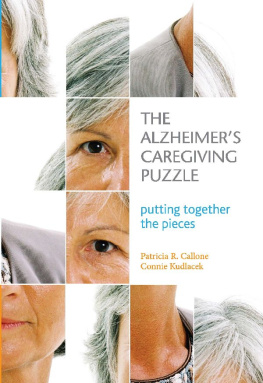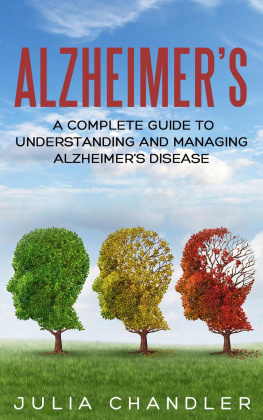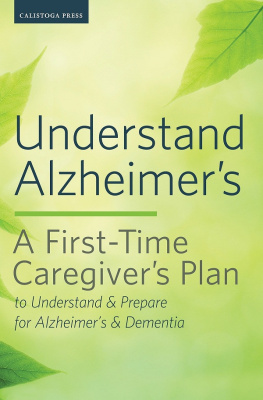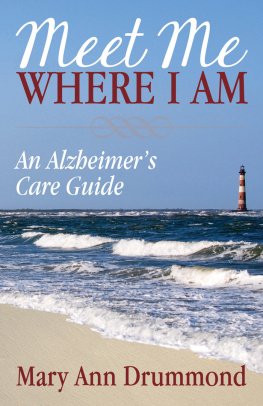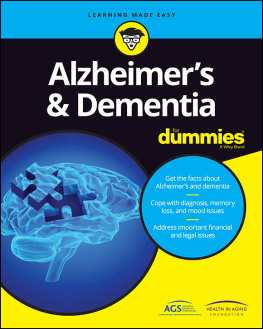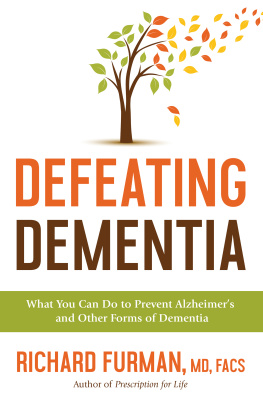| alzheimers.org.uk |  |
The progression of Alzheimers disease and other dementias
Each person experiences dementia in their own way, but it can be helpful to think of the way the condition progresses as a series of stages. This factsheet outlines the characteristics of early-, middle- and late-stage Alzheimers disease and briefly looks at how other forms of dementia progress.
Alzheimers disease
Alzheimers disease is a progressive illness. This means that the structure and chemistry of the brain become increasingly damaged over time. The persons ability to remember, understand, communicate and reason will gradually decline. Looking at Alzheimers disease as a series of three stages can be a useful way of understanding the changes that occur over time. But it is important to realise that this view of Alzheimers can only provide a rough guide to the course of the disease. This is because:
- some symptoms may appear earlier or later than indicated here, or not at all
- the stages may overlap the person may need help with one task, but may be able to manage another activity on their own
- some symptoms, such as walking about, may appear at one stage and then vanish, while others such as memory loss will worsen over time.
The way that a person experiences Alzheimers disease will depend on many factors, including their physical make-up, their emotional resilience, the medication they take and the support they can rely on.
Early stage
Alzheimers disease usually begins gradually with very minor changes in the persons abilities or behaviour. At the time, such signs are often mistakenly attributed to stress or bereavement or, in older people, to the normal process of ageing. It is often only when looking back that we realise that these signs were probably the beginnings of dementia.
Loss of memory for recent events is a common early sign. Someone with Alzheimers may:
- forget about recent conversations or events
- repeat themselves
- become slower at grasping new ideas
- lose the thread of what is being said
- sometimes become confused
- show poor judgement, or find it harder to make decisions
- lose interest in other people or activities
- develop a readiness to blame others for taking mislaid items
- become unwilling to try out new things or adapt to change.
If you are caring for someone with Alzheimers disease, theres a lot you can do in the early stages to help the person you are caring for maintain their independence. It may be tempting to do things for them, but they are more likely to retain their sense of self-worth if they are given the chance to do things for themselves, with support if necessary. (See our factsheet Staying involved and active (521) for more information.)
The person may also become anxious and agitated. They may experience distress over their failure to manage tasks and may need some reassurance. If this is the case, try to talk to them, and give them as much emotional support as you can.
Middle stage
As Alzheimers disease progresses, the changes become more marked. The person will need more support to help them manage their day-to-day living. They may need frequent reminders or help to eat, wash, dress and use the toilet. They are likely to become increasingly forgetful particularly of names and may sometimes repeat the same question or phrase over and over because of the decline in their memory for recent events. They may also fail to recognise people or confuse them with others.
Some people at this stage become very easily upset, angry or aggressive perhaps because they are feeling frustrated or they may lose their confidence and become very clingy. Other symptoms may include:
- becoming confused about where they are, or walking off and becoming lost
- becoming muddled about time and getting up at night because they are mixing up night and day
- putting themselves or others at risk through their forgetfulness for example, by not lighting the gas on the cooker
- behaving in ways that may seem unusual, such as going outside in their nightclothes
- experiencing difficulty with perception, and in some cases having hallucinations.
For more information about these symptoms and how to deal with them, see our factsheets on Unusual behaviour (525), Moving and walking about (501), and Sight, perception and hallucinations in dementia (527).
Late stage
At this stage, the person with Alzheimers will need even more help and will gradually become totally dependent on others for nursing care. Loss of memory may become very pronounced, with the person unable to recognise familiar objects or surroundings or even those closest to them, although there may be sudden flashes of recognition.
The person may also become increasingly frail. They may start to shuffle or walk unsteadily, eventually becoming confined to bed or a wheelchair. Other symptoms may include:
- difficulty in eating and, sometimes, swallowing
- considerable weight loss although some people eat too much and put on weight
- incontinence losing control of their bladder and sometimes their bowels as well
- gradual loss of speech, though they may repeat a few words or cry out from time to time.
The person may become restless, sometimes seeming to be searching for someone or something. They may become distressed or aggressive especially if they feel threatened in some way. Angry outbursts may occur during close personal care, usually because the person does not understand what is happening. Those caring for the person should try not to take this personally, the person is not being aggressive deliberately. Although the person may seem to have little understanding of speech, and may not recognise those around them, they may still respond to affection and to being talked to in a calm soothing voice. They may also enjoy scents, music, or stroking a pet.
On average, people with Alzheimers disease live for eight to ten years after their symptoms begin. Life expectancy does, however, vary considerably depending on how old the person is. For example, people diagnosed in their 60s and early 70s can expect to live for around seven to ten years, whereas someone diagnosed in their 90s will, on average, live for about three years. The length of time that someone with dementia can expect to live for also depends on whether they were diagnosed early on or later in the disease.
For more information about this stage of Alzheimers disease, see our factsheet on The later stages of dementia (417). For more detailed information about Alzheimers disease in general, see What is Alzheimers disease? (401).
Vascular dementia
In vascular dementia, which is commonly caused by a stroke or a series of small strokes, brain cells are deprived of oxygen and die. This can occur in distinct parts of the brain, leaving other areas relatively unaffected. It is sometimes difficult to tell whether people have Alzheimers or vascular dementia. It is also not unusual to have a mixed form.
Next page
